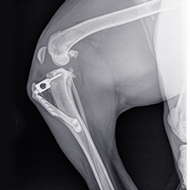In the US alone, the drop in antibiotic effectiveness could cause 120,000 extra infections and 6,300 more deaths in cancer patients.
New study looks at antibiotic effectiveness in cancer patients
Scientists say a 30 per cent drop in antibiotic effectiveness could cause thousands more deaths in US patients receiving chemotherapy.
A new study examined the potential consequences of rising antibiotic resistance in the top 10 most common surgical procedures and chemotherapies that are dependent on antibiotics.
According to the findings, in the US alone, the drop in antibiotic effectiveness could cause 120,000 extra infections and 6,300 more deaths in cancer patients receiving chemotherapy treatment.
Lead author Ramanan Laxminarayan, from the University of Strathclyde in Glasgow, said: "Most of us will take antibiotics at some point in our lives people and everyone should be mindful of the fact that resistance is a potential problem if we are going in for minor surgery, hip or knee replacement, transplant or chemotherapy.
"Our findings are likely to hold true in many other developed countries, given the common use of surgical procedures. Antibiotic resistance is a threat not just in places with a high burden of infectious disease."
Researchers estimated that 38-50 per cent of pathogens causing surgical site infections are resistant to standard prophylactic antibiotics in the US. Over a quarter (26 per cent) of pathogens causing infections after chemotherapy are resistant.
In the case of infections developing after prostate biopsy, 42 per cent were down to fluoroquinolones, which are among the most widely used antibiotics.
The research team plan to extend their study of antibiotic resistance. The research paper states: "Clinical studies are needed to ascertain how antibiotic prophylaxis recommendations should be modified in a situation of increasing resistance.
"We urgently need national and international strategies to limit the growing threat of antimicrobial resistance and to develop new antibiotics, especially against multidrug–resistant …pathogens."







 Birmingham Dogs Home has issued an urgent winter appeal as it faces more challenges over the Christmas period.
Birmingham Dogs Home has issued an urgent winter appeal as it faces more challenges over the Christmas period.
